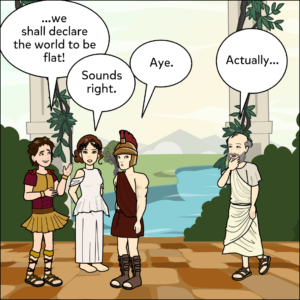 Logical fallacies are errors in reasoning that are based on poor or faulty logic. When presented in a formal argument, they can cause you to lose your credibility as a writer, so you have to be careful of them.
Logical fallacies are errors in reasoning that are based on poor or faulty logic. When presented in a formal argument, they can cause you to lose your credibility as a writer, so you have to be careful of them.
Sometimes, writers will purposefully use logical fallacies to make an argument seem more persuasive or valid than it really is. In fact, the examples of fallacies on the following pages might be examples you have heard or read. While using fallacies might work in some situations, it’s irresponsible as a writer, and, chances are, an academic audience will recognize the fallacy.
However, most of the time, students accidentally use logical fallacies in their arguments, so being aware of logical fallacies and understanding what they are can help you avoid them. Plus, being aware of these fallacies can help you recognize them when you are reading and looking for source material. You wouldn’t want to use a source as evidence if the author included some faulty logic.
The following pages will explain the major types of fallacies, give you examples, and help you avoid them in your arguments.
